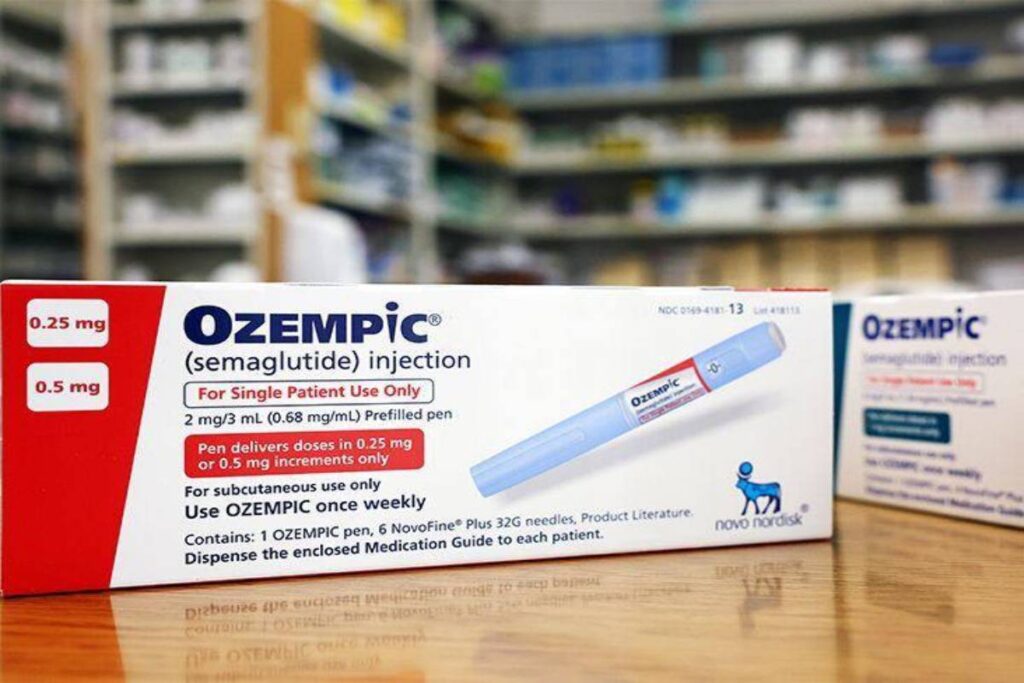Ozempic and similar drugs are ushering in a new era of weight management and obesity treatments, and researchers are racing to understand their impact. In the past few years, Ozempic, Mounjaro, and Zepbound have been all over social media and mainstream headlines.
The fierce interest in these drugs has fueled a research boom that produced impressive results in 2023. These drugs, typically taken as regular injections, are attractive for multiple reasons. They offer a seemingly fast and easy way to lose weight and unexpected cardiac benefits.
Although the latest research shows immense promise, high costs and poor accessibility of the life-long treatment pose thorny challenges. However, much research suggests these drugs may provide several other health benefits.
In addition to helping people lower blood sugar levels and lose weight, these medications may also help treat or reduce your risk of the following conditions.
Breakthroughs With a Hunger Hormone
Novo Nordisk’s diabetes medication Ozempic and weight-loss drug Wegovy are two brand names for an agonist known as semaglutide. This binds to specific receptors in the body to trigger the hormone glucagon-like peptide-1 (GLP-1) release.
ALSO READ: Study Reveals Mediterranean Diet and Exercise Improves Gut Health, Leads to Weight Loss
This promotes insulin production and reduces blood sugar, originally making semaglutide appealing to diabetes drug developers. Scientists have found that the drugs also influence appetite when you eat.

GLP-1 levels increase and make you feel “full,” suppressing hunger. A 2021 study found that people taking semaglutide lost an average of 14.9 percent of their initial body weight over 68 weeks, compared with 2.4 percent of those receiving placebo injections.
Some researchers have called GLP-1 agonists and similar drugs a “transformative breakthrough” for treating obesity. However, others express concerns that they may be “potentially harmful” by worsening social stigma around weight.
Researchers also question who will respond best to treatment. They factored in recent findings of possible adverse side effects, such as gastrointestinal problems and muscle mass loss.
Ozempic Helps With Curbing Addiction
Scientists have explored how GLP-1 agonists may have other beneficial side effects that could address additional health conditions beyond obesity and diabetes. Some Ozempic users found that while taking the medication to control their food cravings, other cravings also seemed to subside.
These included addictions to nicotine, alcohol, and gambling, and even skin picking and other compulsive behaviors. Various research groups are looking into how GLP-1 might impact addiction pathways and whether its mechanism can be taken to treat addictions to substances such as alcohol, nicotine, and opioids.
Improving Cardiac Health
In November 2023, Novo Nordisk released clinical trial results that made huge waves. People who took semaglutide for about three years lowered their risk of heart attack, stroke, and death from cardiovascular disease by 20 percent.
The trial’s participants were overweight or had obesity and cardiovascular disease but not diabetes. Those who took semaglutide lost weight, but weight loss alone didn’t seem to explain improvements in the participants’ heart health.
Kidney Disease
Kidney disease is sometimes called a “silent” disease because it often causes no pain or other symptoms. High blood pressure also contributes to kidney disease. However, according to Novo Nordisk, semaglutide, the active ingredient in Ozempic and Wegovy, can cut the risk of kidney disease-related events in people with type 2 diabetes and chronic kidney disease.
Novo Nordisk reported that those in the semaglutide group showed a reduction in kidney disease progression as well as cardiovascular and kidney death of 24%.
ALSO READ: Oprah Winfrey Reveals Shocking 5 Months of Self-Starvation Amidst Diet Discourse
Ozempic Might Impact Alzheimer’s Disease
Novo Nordisk’s current clinical trials are underway. They specifically study GLP-1s’ impact on cognitive function. The trials assess the effect of semaglutide versus placebo in people with early Alzheimer’s disease.

This is done by analyzing changes in cognition and function and comparing their effects on slowing the clinical progression of dementia in people with mild cognitive impairment. In addition, obesity, metabolic syndrome, and type 2 diabetes contribute to impaired cognitive function and increase the risk of Alzheimer’s disease.
Conclusively, the assumption can be made that weight control and diabetes management with GLP-1 medications could help reduce the risk of Alzheimer’s disease. However, research into the correlation is underway.
You Might Also Like:
6 Popular Makeup Trends on Our Radar for 2024
Bruce Willis’ Wife Honors Him With a Heartfelt Post on His Birthday
Mastering Suit Styles for Every Occasion
Top 13 Deodorants Rated Best by Dermatologists and Sweat Warriors
